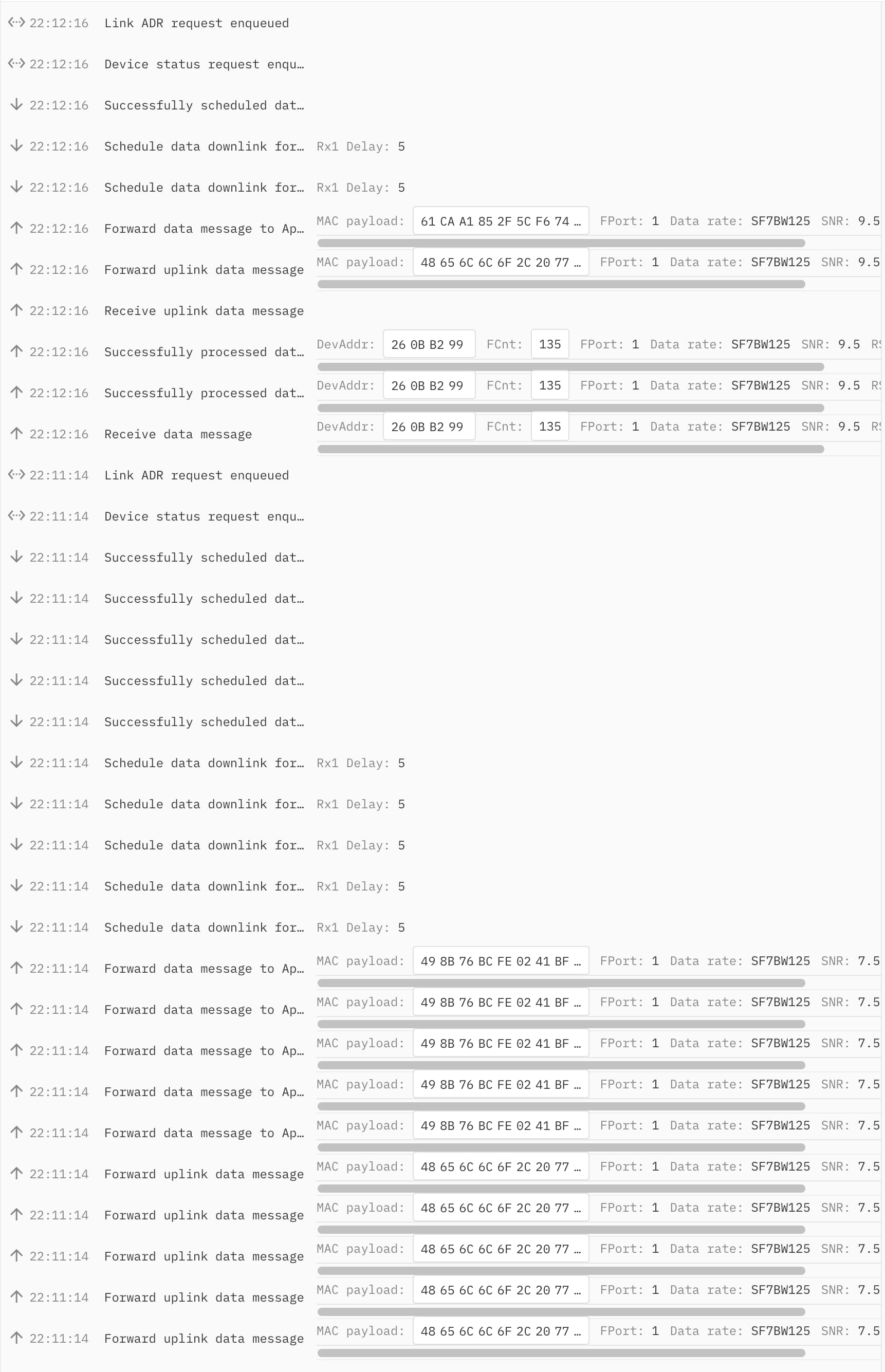I’m pretty new to TTN, LoRa, and electronics in general — so please bear with me. There’s a lot of possible points I might be going wrong and I’m struggling a bit to narrow it down to be able to debug. Trying to learn too many new things at once, I suppose.
I’m using a Firebeetle ESP32 (ESP-WROOM-32) with an HopeRF RFM95 module.
There seems to be no other gateways in my area so I followed the instructions here and built my own using an RPI and a iMST iC880a board (EUI: B827EBFFFE742512). Based on the output I’m seeing on the console it seems to be working fine?
With the MCU I’m using the LMIC library (mcci-catena/MCCI LoRaWAN LMIC library@^4.0.0), following the ABP example provided. The pin map looks as follows — the wiring should be done accordingly  :
:
const lmic_pinmap lmic_pins = {
.nss = 5,
.rxtx = LMIC_UNUSED_PIN,
.rst = 14,
.dio = {/*dio0*/ 26, /*dio1*/ 25, /*dio2*/ 27}
};
The output from the serial monitor looks as follows:
Starting
8501: EV_TXSTART
Packet queued
139673: EV_TXCOMPLETE (includes waiting for RX windows)
3889698: EV_TXSTART
Packet queued
...
A join event never seems to take place. I have double checked the NwKsKey as well as the AppSKey. I’m unclear on whether my wiring is incorrect or if I’ve gone wrong somewhere else.
Any recommendations on which thread to pull first would be very much appreciated.
 .
.